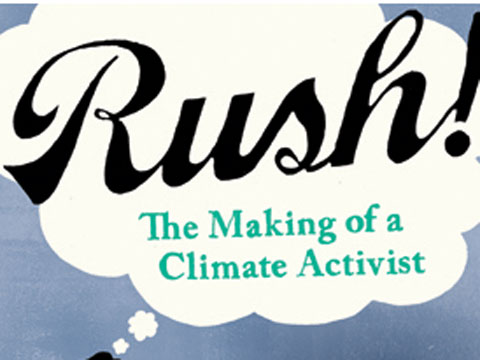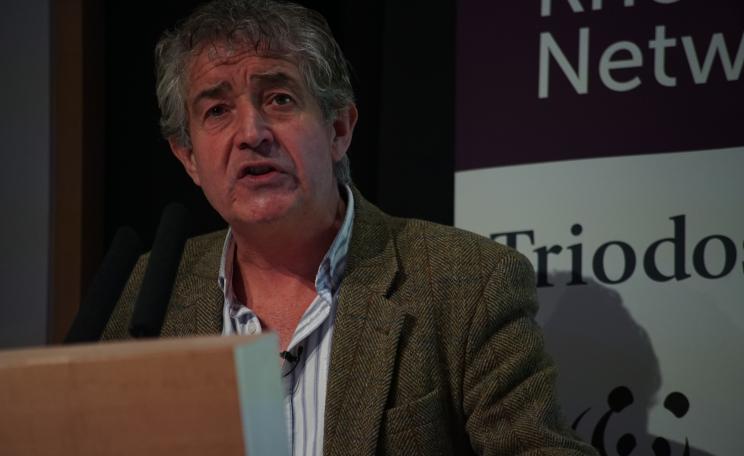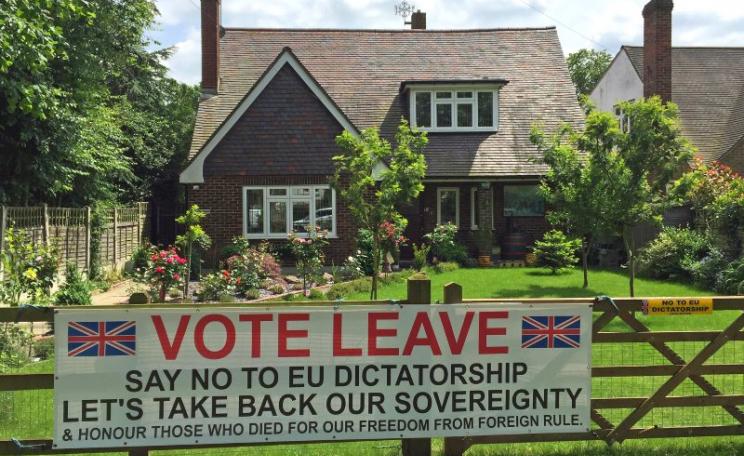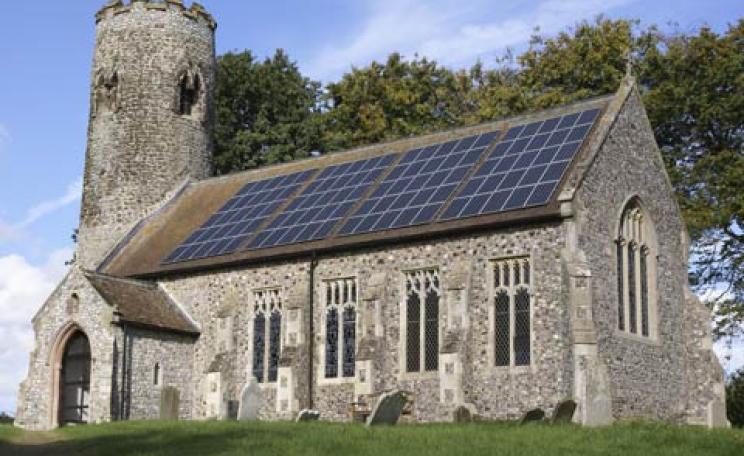The police had not been allowed to disperse us. We had stood together and we had pushed them out.
The sky had clouded over and started to spit with rain, and gradually the London Neighbourhood tent filled up. People sat around reading leaflets and sharing books. The conversations around me ranged from in-depth discussions about carbon emissions to joking plans to steal one of the mounted policemen's horses and do some dressage through the camp. On one side of the marquee a large strip of white cloth had been unravelled and people were painstakingly hand painting the words ‘This Planet Has No Emergency Exits.' I finally worked out how to be useful and started collecting dirty cups to be washed. Some die-hards outside continued to hammer-in tent pegs and haul bales of hay in the rain. Suddenly, a shout rose above the afternoon lull.
Another voice yelled in response, and then another, until the quiet of the camp was broken by busy, panicked shouts. In the Neighbourhood tent everyone dropped what they were doing, left the marquee and ran in a long wave in the direction of the loudest cries. Together we leapt over tents and guy ropes, sprinting to the main gate of the camp where there was already a crush of people. We could see the rows of riot-police and police vans behind them. Nearer to us was a line of activists, their arms held high. Behind them was a mass of people, more arriving by the second. Some pulled on anoraks as they approached. Others craned their necks and peered out into the line of the riot police. All I could see were the policemen's eyes. Their faces were masked with black balaclavas, which were covered by helmets with visors.
‘Typical,' I heard someone mutter, ‘as soon as the media have gone home, they start clearing us up.'
The idea of being ‘cleared up' by this faceless arm of the law was terrifying. They were uniform. A clear shield on one arm which jabbed out if a protester got too close, the other hand-fingering the baton, nervous and twitching and always ready to go. With our hands up, demonstrating our lack of weapons and our vulnerability to their blows, we assumed a peaceful stance. But there was massive tension in the air: no-one knew what the police were hoping to achieve, or how long we would need to stand defending our right to camp.
A man had his three year old child tied to his chest. He kept his eye closely on the police line in front as his little girl giggled and wiped the rain from her face. Suddenly the police charged.
The mass of people became an ordered, deep-ranked line of protesters with hands held up like kids playing cowboys and Indians, pushing the police back with the physical weight of their bodies and nothing more. They met our resistance with aggressive blows and snarled shouts.
‘FUCKING MOVE!' One man was dragged from the lines of protesters, taken behind the lines of police and beaten hard. A roar went up: ‘SHAME ON YOU! SHAME ON YOU!' Again we surged forward, our hands in the air, giving the police nothing but our bodies to storm against. For a moment the police held firm. Then we surged and they edged back. The gridlock of yellow uniforms, riot shields and helmets began to break down as the climate campers refused to turn and run, refused to be intimidated. Twenty minutes passed, and more protesters were pulled away from their friends, tugged beyond the police lines and beaten. We stood together and walked slowly forward. The police were pushed from the camp.
The police had not been allowed to disperse us. We had stood together and we had pushed them out.
As the last of the riot police left our site by the main gate, we were buzzing with a new energy and a new sense of community. Groups form around a common purpose, but what binds them together is the opposition they meet. I had thought I had little in common with many of the people there, but when we found ourselves under attack we found that to the police, at least, we were completely indistinguishable. We were united by the police's treatment of us, and united in indignation that people supposed to protect our safety had charged in and attacked us when we resisted. There was a buzz throughout the camp. The police had not been allowed to disperse us. We had stood together and we had pushed them out.
This is an extract from Rush! The making of a climate activist by Tamsin Omond (Marion Boyars Publishers Ltd, 2009, £7.99)
| READ MORE... | |
 |
REVIEW Rush! The Making of a Climate Activist Tamsin Omond's personal account of her journey from carefree student to 'climate suffragette' explores the world of climate activism in a manner that can only inspire |
 |
TAKE ACTION Climate Suffragette: Tamsin Omond She's applying the same principles to environmental campaigning as her forebears did to fighting for universal suffrage. Laura Sevier meets the founder of the Climate Rush |






